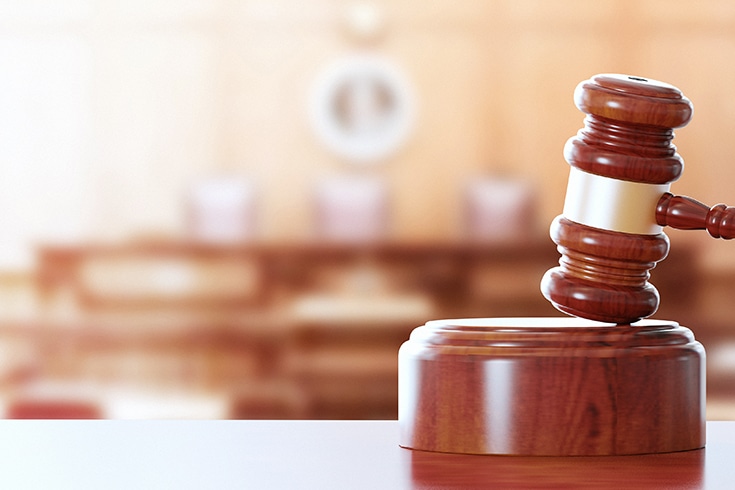Does Aggregate Websites Have Legal Responsibility? Deciphering the 'Kyoto Animation Incident

On the morning of July 18, 2019 (Heisei 31), a 41-year-old man broke into Kyoto Animation’s first studio, spread gasoline from a bucket on the first floor of the building, and ignited it with a lighter. The studio was completely burned down, resulting in an unprecedented disaster where 36 employees died and 33 were seriously or slightly injured.
Immediately after this heinous crime, known as the “Kyoto Animation Incident,” a certain article became controversial.
The issue was a phrase, “Why are they collecting evidence before the police arrive?” This was written alongside an image of a news video that had been edited to appear as if a NHK director was collecting the suspect’s belongings.
A judgment was made on March 16, 2021 (Reiwa 3), in a lawsuit where NHK sought damages from the operator of the aggregation site “LH MAGAZINE” for quoting and spreading the aforementioned post.
Often, it is thought that aggregation sites are merely platforms and that they are only “collecting” information, so they should not be held responsible for the content they disseminate.
So, what kind of legal responsibility can arise for the operators of aggregation sites that create articles summarizing information posted on bulletin boards or Twitter?
In this article, we will explain how the judgment was made in the “Kyoto Animation Incident” trial.
Summary Site of the Kyoto Animation Incident
Immediately after the incident, posts suggesting that NHK and its reporter X were involved in the arson murder case continued to appear on “5chan”.
The summary site “LH MAGAZINE” compiled these posts, naming the reporter and attaching a catchy title like “【Kyoto Animation Arson】Why did NHK’s X collect the arsonist’s left-behind items… and the biggest mystery is the gloves”. They also attached an image that could be interpreted as a man wearing gloves picking up something, and posted articles quoting these on Twitter.
Request for Disclosure of Sender Information

NHK quickly responded by first requesting the content provider to disclose the sender information in order to identify the operator of “LH MAGAZINE”.
The court ordered the disclosure of information regarding this request. The reason was that they evaluated the posts of “LH MAGAZINE” as follows:
The posts on this site were re-edited from posts published on 5chan, and the selected and edited posts, such as “Why did you collect it on your own before the police came?”, “NHK’s coverage crew collected the criminal’s left-behind items faster than the police”, “NHK, why did you hide it?”, “Isn’t it a contract killing by NHK?”, “If you cover it up, you’ll be suspected”, “It can’t be helped if NHK is accused of being an accomplice”, etc., mostly suspect that NHK or its employees were involved in this arson case, and the fact that an NHK employee collected the left-behind items of this arson case is properly indicated, giving the general viewer the impression that NHK or an NHK employee was involved in the arson case and collected the criminal’s left-behind items before the police in order to cover up their involvement. This is an expression that lowers NHK’s social evaluation, and it is clear that NHK’s honor or credibility has been violated by the circulation of this.
And regarding the nature of the “summary site”, it stated that “most of the posts on this site are posts originally published on the original site, and the expressions made by the sender of the posts on this site are not primarily made by themselves”.
However,
“The sender of the posts on this site has added a new title, selected the image to be attached, and selected and edited the posts to be published on this site from among the many posts published on the original site. As a result, the posts on this site, as a whole, give the viewer the impression mentioned above, so the sender should not be exempted from the obligation to compensate for the plaintiff’s damage caused by the posts on this site, on the grounds that the posts on this site are re-edited from the posts published on the original site.”
Osaka District Court, December 3, 2019 (Heisei 31) Judgment
It was evaluated as such.
The idea that “summary sites are just platforms and they only compile information, so they are not responsible for the content of the information” has been clearly denied.
https://monolith.law/reputation/blog-summaryblog-summary-law-affiliate[ja]
Damage Compensation Claim
In response to this, on January 24, 2020, NHK filed a lawsuit against the operator of “LH MAGAZINE” in the Tokyo District Court, claiming that their reputation had been defamed and seeking damages.
“LH MAGAZINE” is an information distribution site that delivers original articles and summary articles from internet bulletin boards. It is operated by advertising revenue from product introductions through affiliate programs and their incentives. At that time, the site had about 1.2 million views per month.
Furthermore, the defendant posted articles on Twitter under the account “LH MAGAZINE” every time a new article was posted on the site. These posts included the title of the article (the full title was reprinted as is) and the main image, along with a hyperlink to the article on the site (the URL of the article was set as the reference). At that time, they had 6,336 followers.
Arguments of Both Parties
The plaintiff, NHK, argued:
The article in question was made public to the world via the internet, and it was viewed 62,068 times in about two weeks after its publication. Considering that the site where the article was posted had about 1.2 million views per month, it is clear that the article was viewed by many people. This significantly lowered the social evaluation of the plaintiff and raised serious doubts about the plaintiff’s position as a public broadcasting organization established under the Broadcasting Law, which should be neutral and fair. Although the tweet in question does not post the full text of the article, when viewers retweet the quoted article, the content of the article and the tweet will spread indefinitely.
In response, the defendant argued:
The article and the tweet in question are nothing more than reprints of some articles posted on the original site (note that the still images are originally still images posted by a third party on a blog, which were reprinted on the original site, and the article in question is just a further reprint of that). Therefore, the defendant did not publish any new information. Therefore, the article and the tweet in question do not further lower the social evaluation of the plaintiff.
The defendant also argued:
The article and the tweet in question are nothing more than reprints of articles posted on the original site, which anyone can post and which has low credibility. Regarding the article in question, the defendant stated on the site that “However, the content of the article is just one opinion, and we cannot guarantee the correctness of the content” and other statements, indicating the possibility that the posted article may not be true and disclaiming liability. The defendant deleted the article and the tweet in question about five months later, in mid-January 2020, and published an apology article on the site. Therefore, the plaintiff did not suffer any intangible damage due to the article and the tweet in question, and even if there was any intangible damage, the amount would be small.
Judgment of the Court

The court, regarding the article in question, after changing the thread title of the original site, 5chan, stated:
The article in question can be recognized as one that selected and edited some articles from the original site, arranged comments suggesting the plaintiff’s involvement in the arson incident in an order that seemed to connect the discussion, and posted an image that looked like a person collecting something with the caption “NHK crew collecting the criminal’s left-behind items faster than the police”. Therefore, the article in question cannot be considered as merely a reprint from the original site. (…) Therefore, the article in question should be considered as an expression that lowers the social evaluation of the plaintiff by itself. Also, looking at the tweet in question, it was sent with the intention of being received by unspecified persons independently of the article in question, and it is not limited to inducing the article in question, but it is as explained above that it lowers the social evaluation of the plaintiff by itself. Tokyo District Court, March 16, 2021 Judgment
The court ruled that both the article and the tweet in question lowered the plaintiff’s social evaluation, and that there was no evidence to support the facts that the plaintiff and X were involved in the arson incident or that they had engaged in evidence tampering. The court recognized defamation for each.
Regarding the disclaimer claimed by the defendant, “All articles on LH MAGAZINE are written and checked by the editor-in-chief before posting” and “However, the content of the article is just one opinion, and we cannot guarantee the correctness of the content. Also, we will not be responsible for any damage caused based on this information”, the court stated that the presence of such a disclaimer does not prevent the establishment of the defendant’s tort against the plaintiff. Even if a disclaimer is mentioned, it is hardly considered.
The court ordered the defendant to pay a total of 3,618,880 yen, including 2.5 million yen for intangible damage caused by the site article, 500,000 yen for intangible damage caused by the Twitter post, 300,000 yen for attorney fees, and 318,880 yen for investigation costs.
https://monolith.law/reputation/honor-infringement-and-intangible-damage-to-company[ja]
Summary
Aggregator websites, as the name suggests, compile various topics and are personalityized by their editing of selected posts that attract reader interest, making information more accessible.
However, due to this personalityistic, there is a high possibility of causing new rights infringements separate from the original article.
Introduction to Our Firm’s Measures
Monolith Law Office is a legal office with high expertise in both IT, particularly the internet, and law.
In recent years, information such as slander and reputational damage spread on the internet has been causing serious harm as a “digital tattoo”.
Our firm possesses advanced professional knowledge in identifying the posters of slander, and we can provide certain solutions. Details are described in the article below.
Category: Internet





















